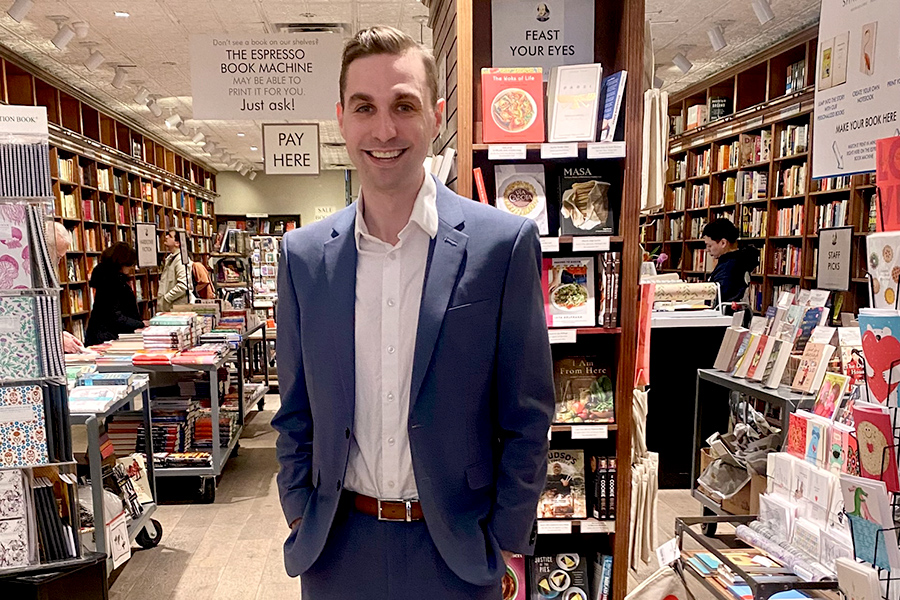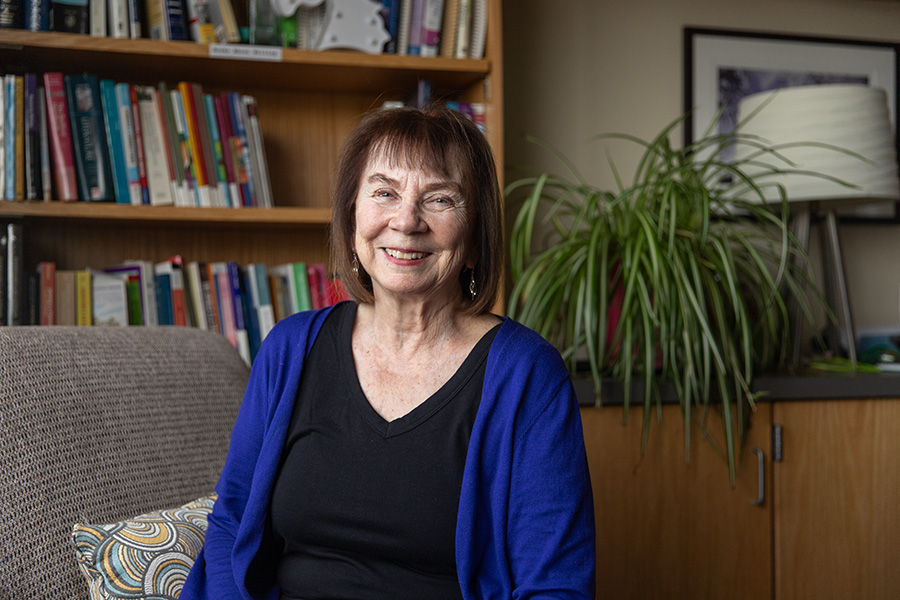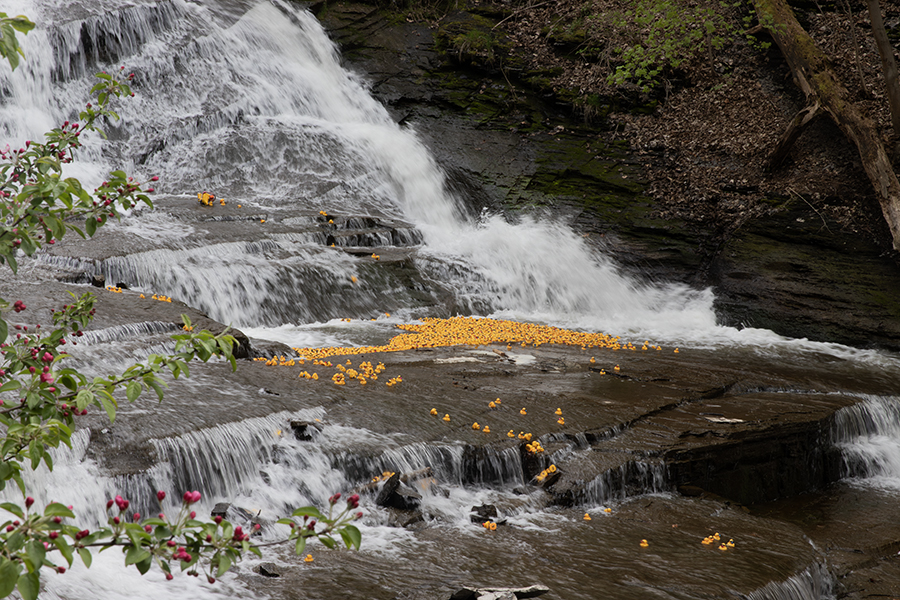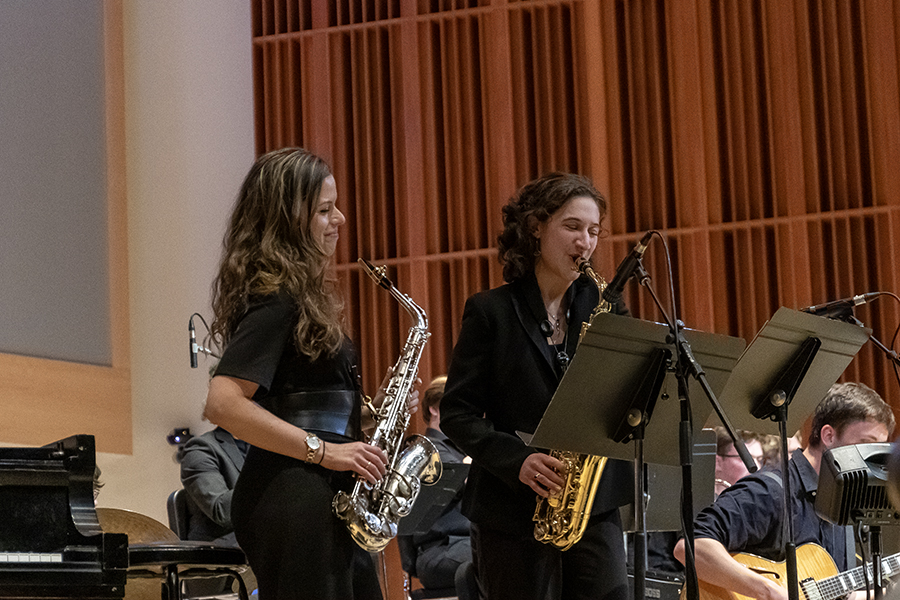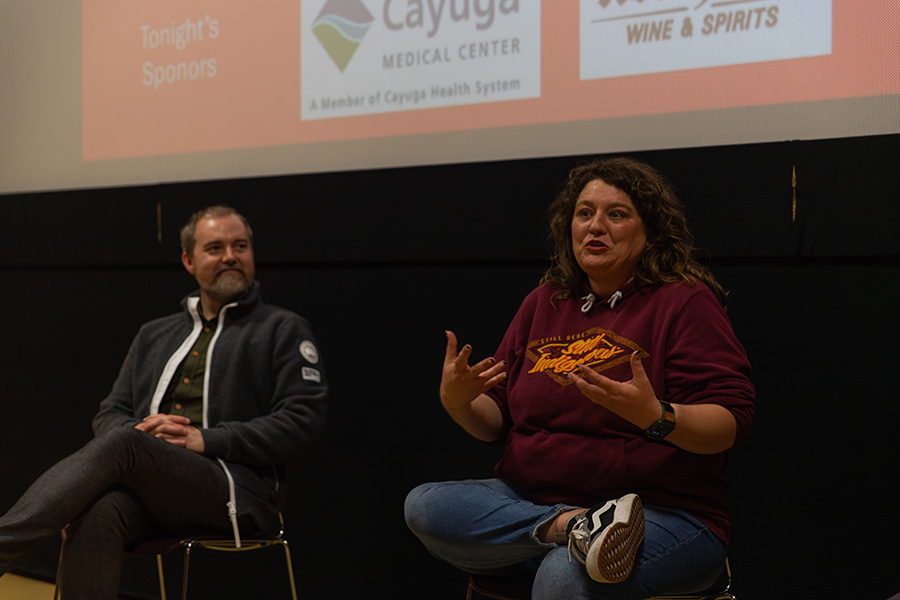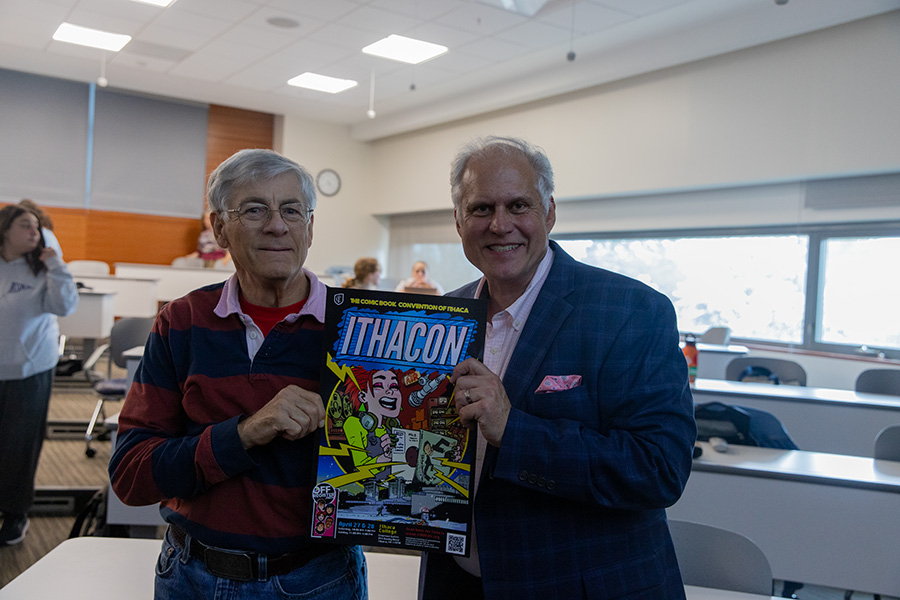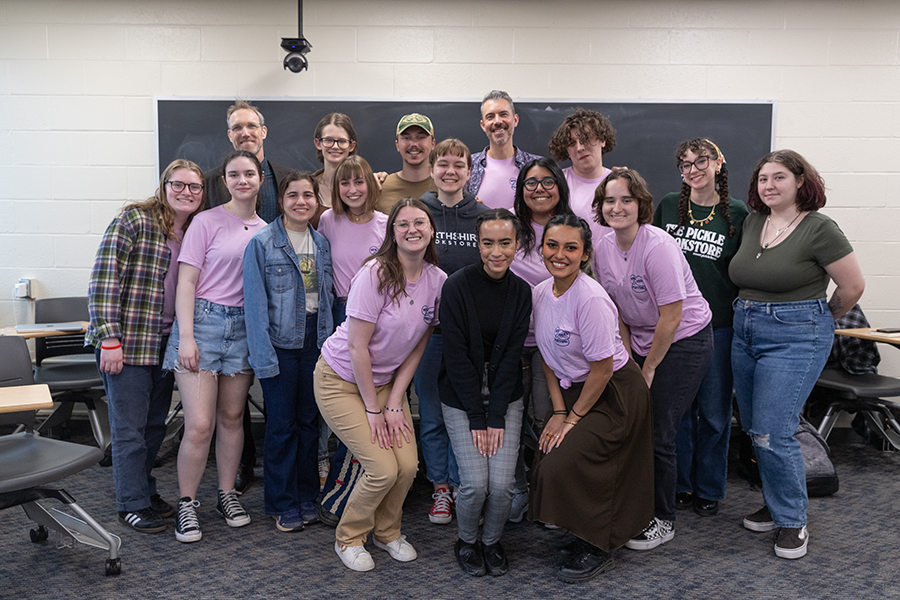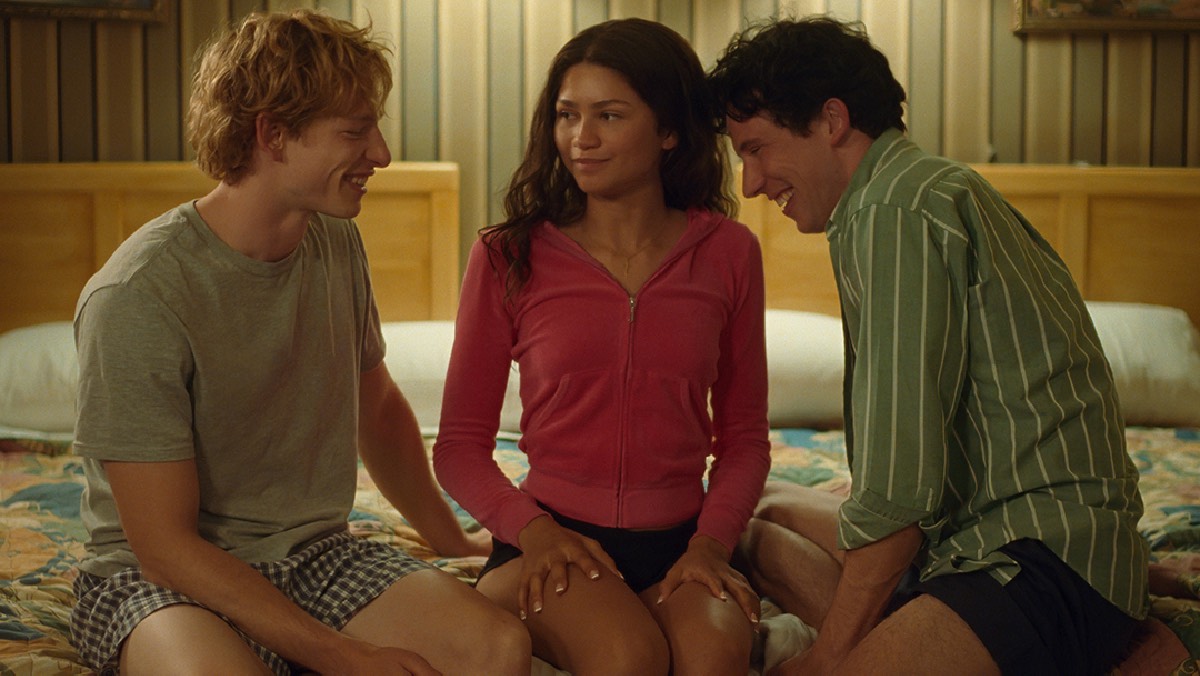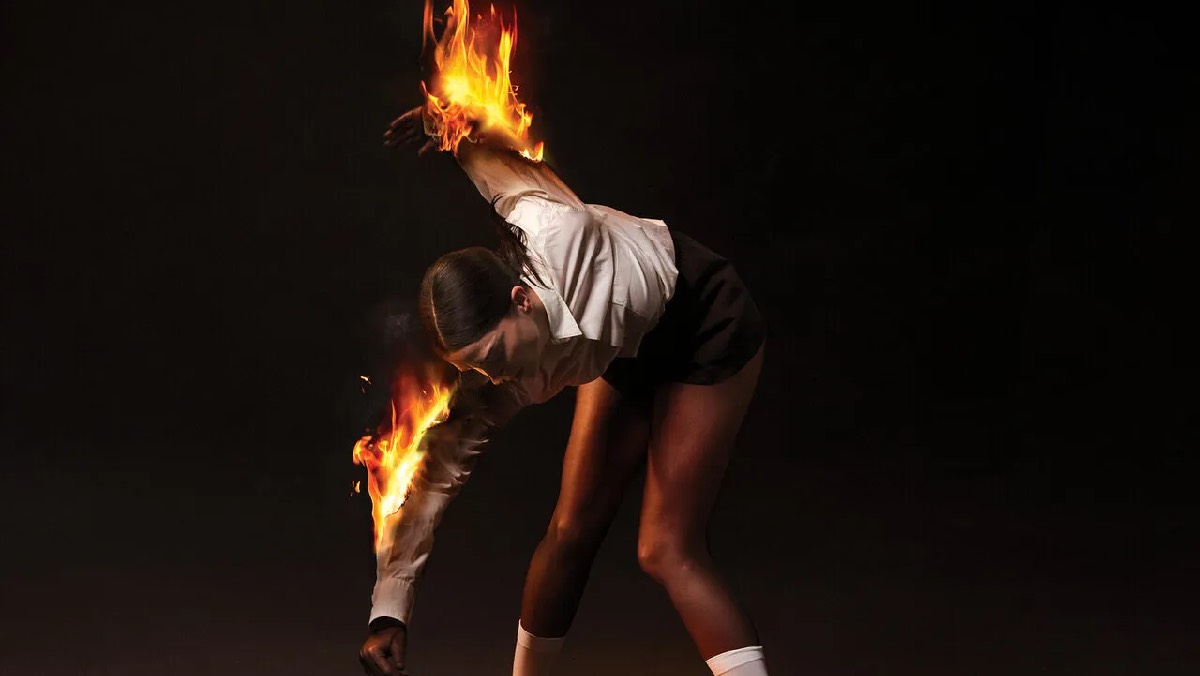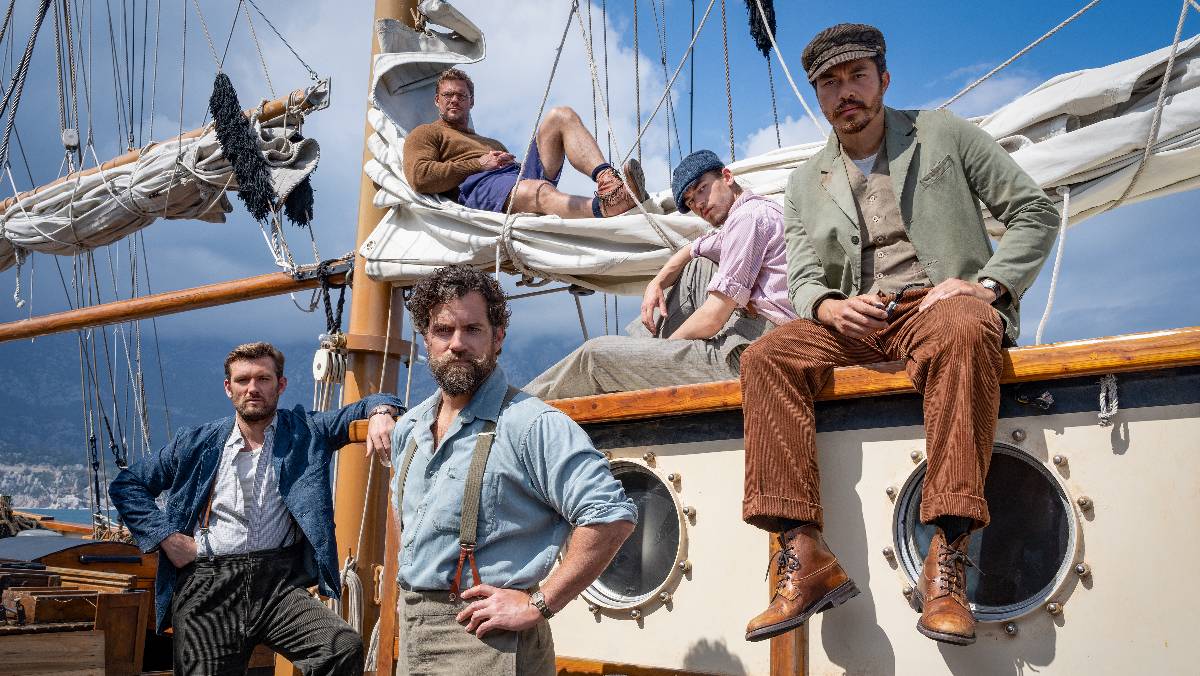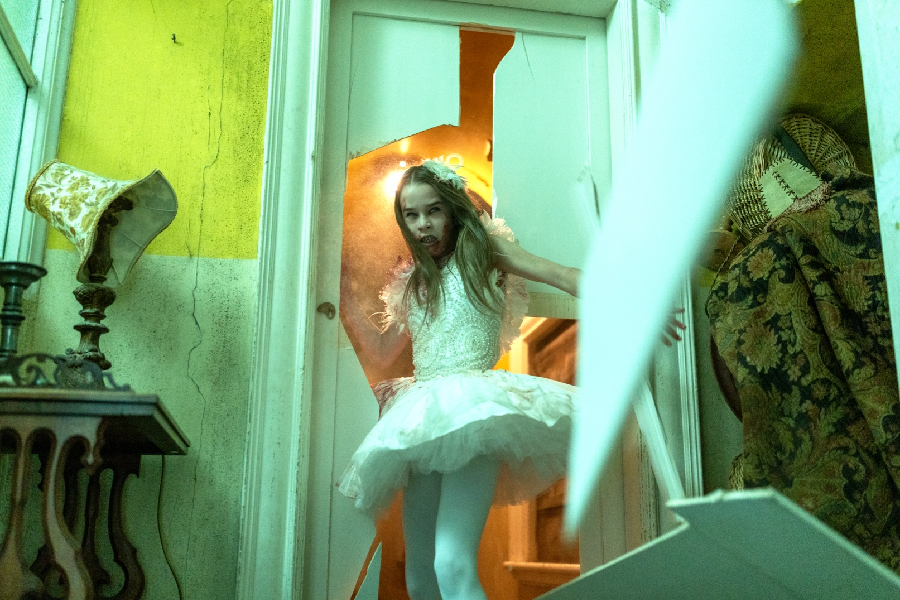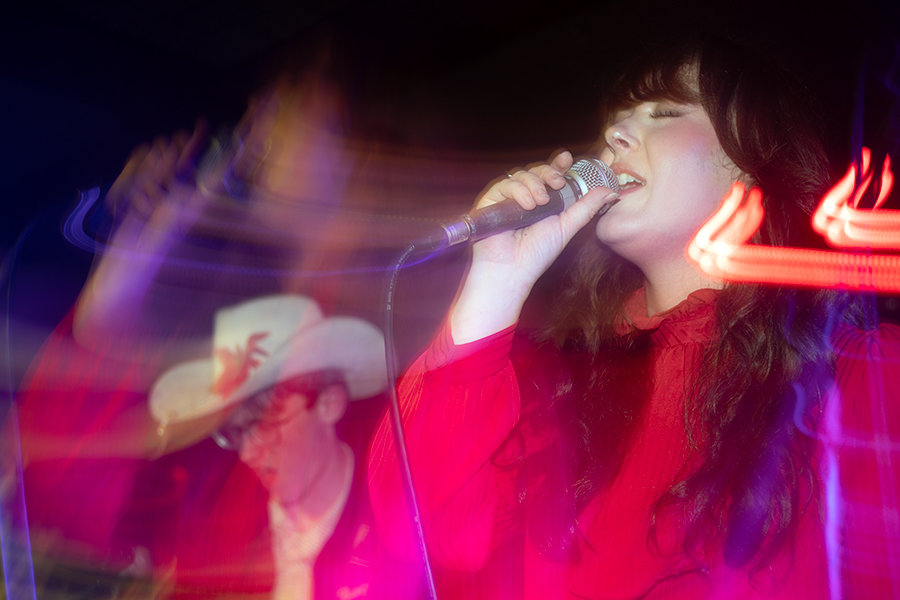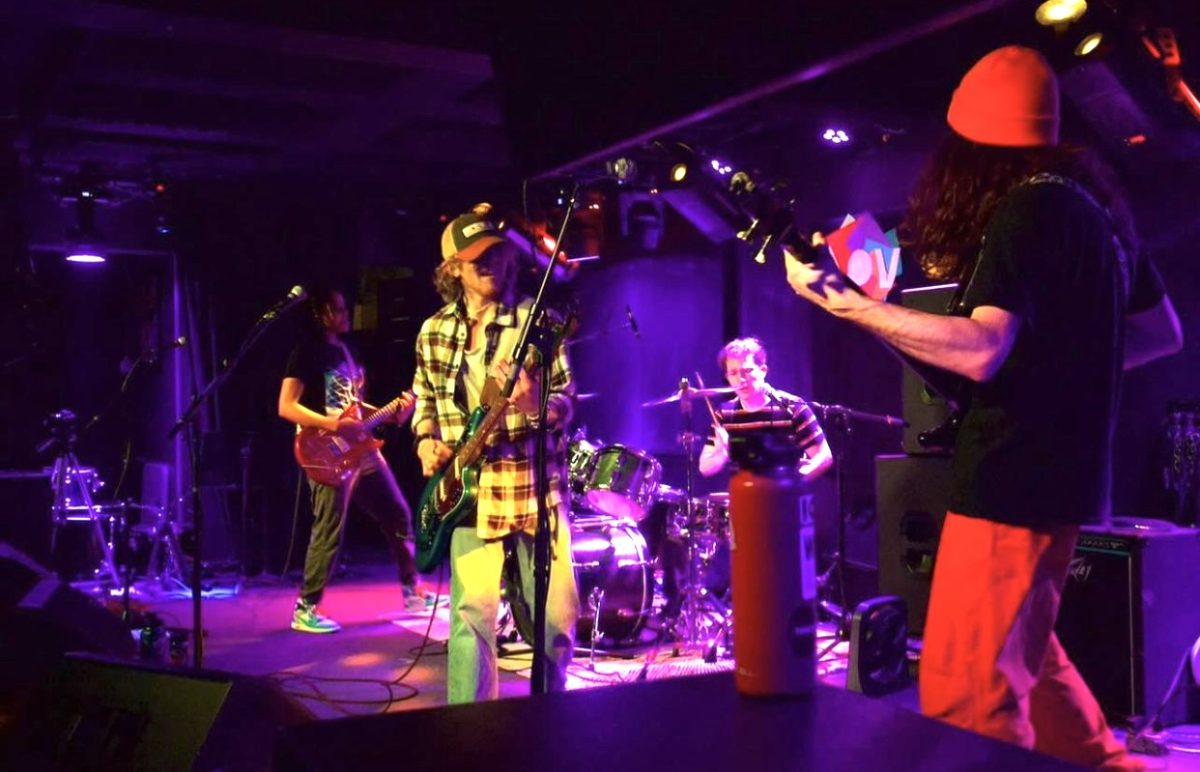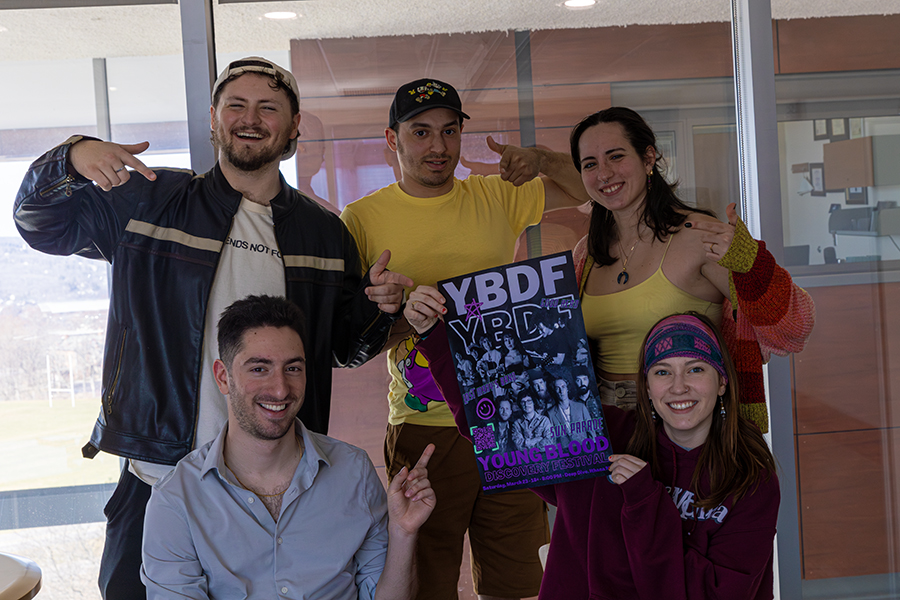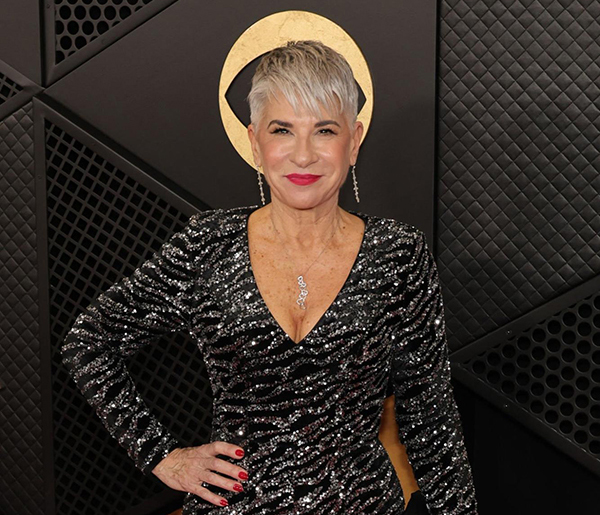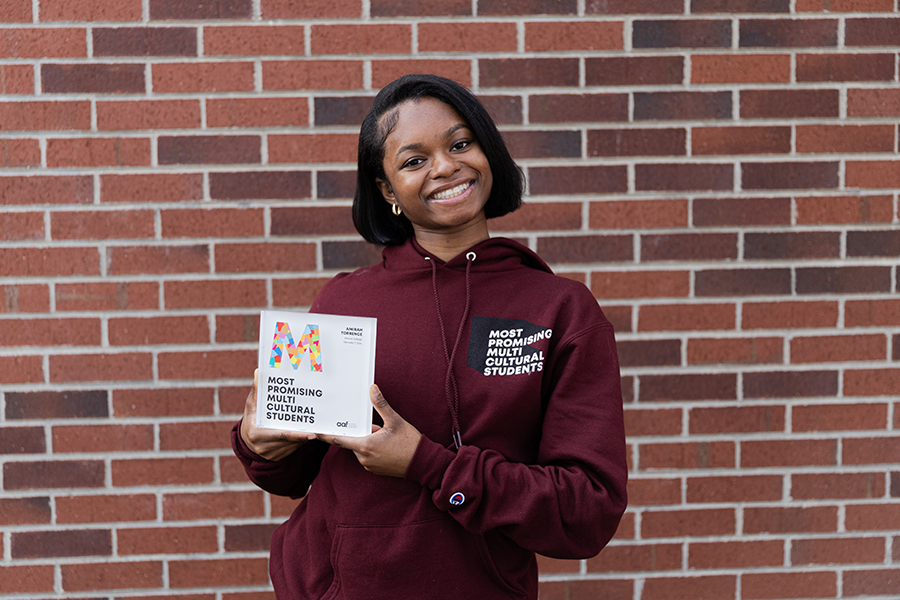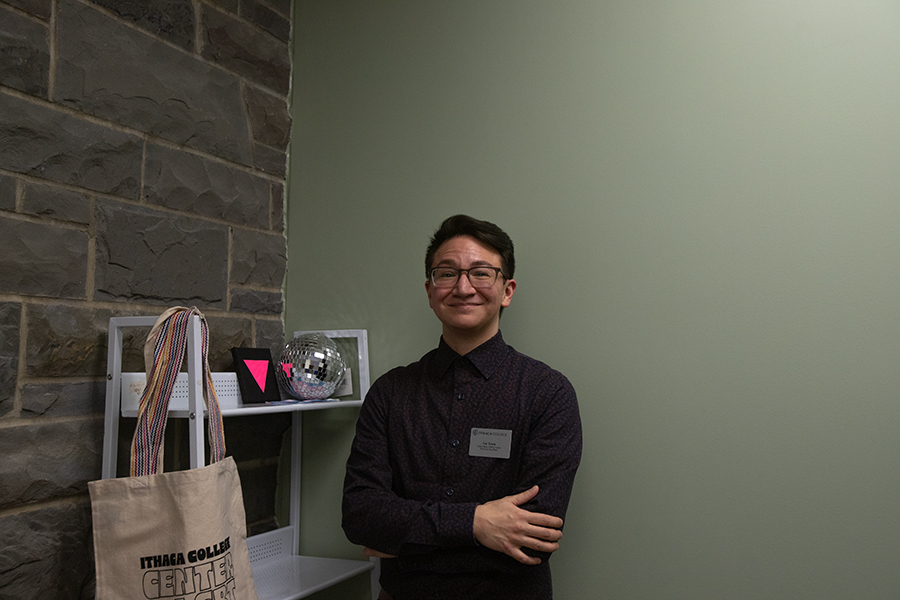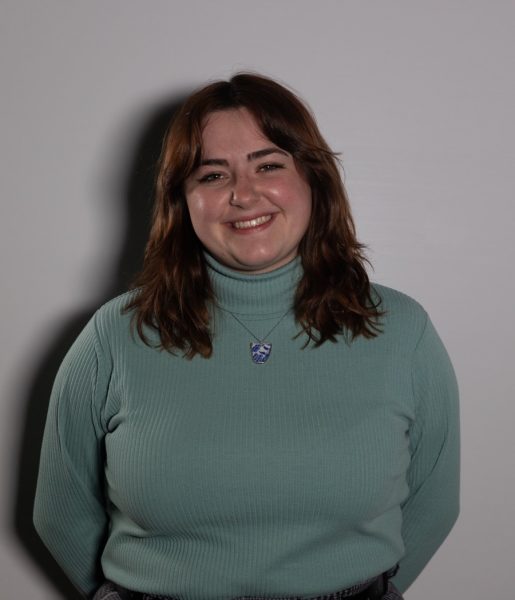Dylan Lyons ’14 has been working to create an online bookstore that will serve as a safe space for members of the LGBTQ+ community. The project is called The Lavender Rhino and will be an online resource where users can find curated lists of queer books that represent LGBTQ+ stories, writings from LGBTQ+ authors and discussion spaces.
Co-Life and Culture Editor Molly Fitzsimons spoke with Lyons about The Lavender Rhino, the motives behind starting this project and where it is going next. Lyons was a journalism major at Ithaca College and later received an MBA at New York University, moving to New York City post-graduation. His professional experience so far has included journalism, content marketing, as well as being active politically and fighting for causes such as LGBTQ+ rights and empowerment.
This interview has been edited for length and clarity.
Molly Fitzsimons: What prompted you to start a bookstore?
Dylan Lyons: So one piece of it is absolutely my love of reading. I think bookstores are kind of my happy place. They’ve brought me a lot of joy throughout the years and kind of disappearing into books, growing up was really a source of comfort for me. I moved around a lot as a kid and I could always turn to my books when I was feeling lonely or just turbulence with the life changes, so that’s always been really powerful for me. The other piece of it is this kind of political climate we’re in where books, and particularly LGBTQ+ books, are being banned in certain states and certain cities around the country primarily by right-wing politicians. And so I felt like this was a really good time to share queer stories as much as possible to make them accessible to everyone. And doing it online is a really great way to be able to get them to people in every state. I felt that this was such an important time to share queer stories to elevate queer authors, and to really create safe community spaces where people can talk about these books that are sometimes being banned.
MF: Why was the decision made to have this as an online resource rather than an in–person bookstore?
DL: So actually, originally, my dream, and it still is my dream one day too, is to create a brick-and-mortar bookstore that still caters to the queer community. I think a couple of reasons drove me to start online, one is that starting a brick-and-mortar business, especially in New York City, is extremely expensive. A lot of startup costs and overhead costs in terms of primarily renting commercial properties and I just wasn’t ready to make that kind of investment yet. And so I thought that starting online would be a great place. Kind of a great way to get this off the ground more quickly, to test out the concepts to gain some brand awareness and to start bringing in some revenue and then I do intend down the line whether that’s in a few years and several years to open a brick-and-mortar version as well.
MF: Because of the political climate right now, around the book bans, do you feel it’s a better or worse time to be trying to launch this business?
DL: So, if you look at it from a moral value perspective, it is so, so important to me that kids and young adults and adults too, of all identities, are able to see themselves reflected in books and are able to have their lived experiences validated through literature and that they’re able to learn about these topics that in a lot of places are being completely censored from them. So I think from a values perspective, it is a crucial time to be promoting this type of business. From an economic standpoint, I don’t know if it makes a difference. I think, potentially, there could be an appetite to get your hands on some of these banned books, but it could also lead to some controversy and could ruffle some feathers. But honestly, if we’re ruffling the feathers of bigots, I think we’re doing something right.
MF: What makes a queer book? Does it have to do with the author of the content or the content itself?
DL: There are a couple of factors that play into it. One that’s like a little more clear cut and obvious is if it’s written by an out queer author, and then we simply know that we can consider it a queer book because we’re supporting the queer author who’s writing it. But then where it gets a little more complex is when you have storylines and characters that are about LGBTQ+ people and relationships, but you’re not really sure how the author identifies. So I am erring on the side of inclusivity and “let’s include as many books as possible” that tell queer stories. I don’t want to sit here and assume author’s identities or assume authors are not queer just because they’re not out. And so rather than saying, “Oh, I think this was written by a straight person, even though it’s a queer story,” I think we’ll just say this is a queer story. This is an opportunity for folks to read more of these types of books, so we’ll just include these as well. So really, it’s characters and topics. Particularly if it’s nonfiction books, looking more at like, what subject matter is covering. And then any authors that we know of that are explicitly part of the community as well.
MF: So how does the selection process of these books get decided? Is there a team who picks them out, and are books submitted by the authors?
DL: I think it’s going to be a mix of things. I think we’re going to establish relationships with publishers, both the big five large publishers that everyone knows, such as Penguin Random House and Simon & Schuster. And then also some smaller niche publishers, especially ones that really focus on queer books. And I think part of the process will be building a relationship with these publishers, getting their recommendations, finding out what new and exciting works are coming out of their publishing houses. And then part of it will be looking at bestseller lists from other bookstores and taking customer feedback on things that they’d like to see. We’re eager to hear from our customers what they’re interested in reading, as well as just using our own judgments. Including some of our favorite works or works that we found really powerful, so it’s kind of going to be a little bit of figuring out the right process and the right balance of us deciding and us taking input, but I think we’ll be able to find a good mix.
MF: I saw that the fundraising deadline has almost ended, but you have passed your goal. So other than deciding what works are being put up on the website, what are the next steps for this project?
DL: Once the campaign closes, then we’ll get to work on sending out the rewards to all of the generous folks who donated and then after that, we’ll shift gears to really focus on building The Lavender Rhino. A huge part of that will be getting the website up and running, making sure it offers a good user experience and that it has the selection that we want, as well as the ability to purchase seamlessly and getting the discussion forums up and running. So the website will be a big part of it and then, of course, selecting and ordering inventory will be the other piece of the puzzle that we’ll get to work on right away.
MF: Do you have any advice for people who also want to create a space like this for others?
DL: Yeah, I think my main piece of advice would be just go for it. I think for a long time, I knew I wanted to do something in this space. I knew I wanted to provide a way to help the LGBTQ+ community connect with one another. But I kind of just was like, “Oh, I’ll do it. Later I’ll do it when I’m in a good spot in my life.” But really, there’s no time like the present to follow your dreams and to follow through on your passions. And so my advice is really just get started. Start talking to people about what they want to see and what they would find beneficial. I did a few surveys before I really got into this work to kind of gauge folks’ interests, and whether this would be something that they would want to see and use. And so I think talking to folks and getting input along the way is really important. But really just get started.

